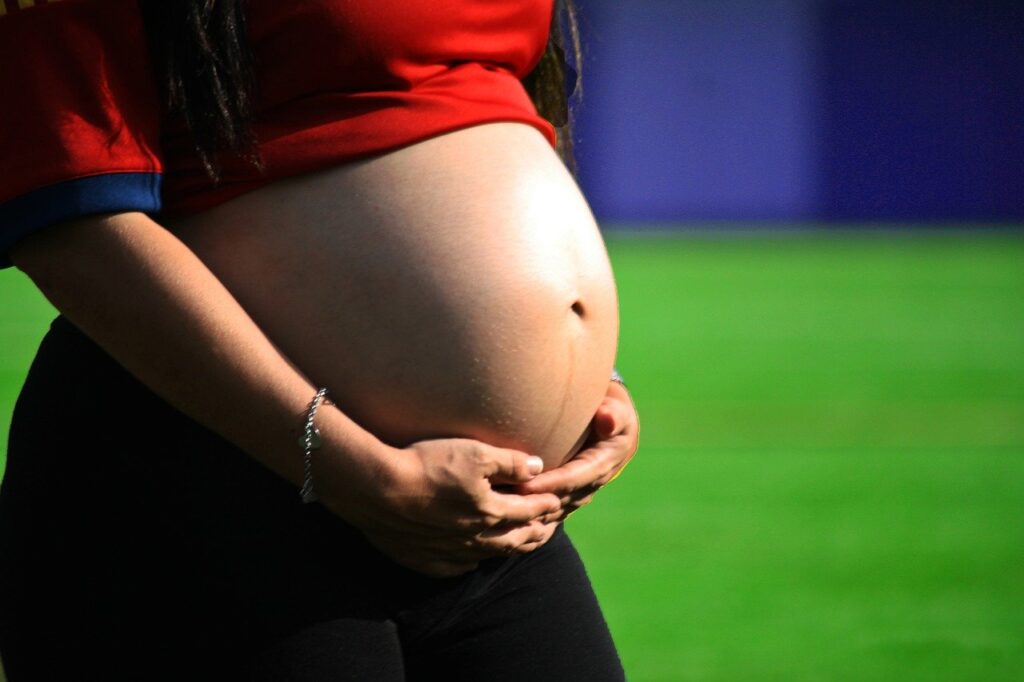
Pregnancy is a unique physiological state requiring an increased intake of certain nutrients. However, some foods are not fit for those living with pregnancy, as they might contain toxins, stimulate the uterus, disrupt hormones, and more.
Fortunately, very few foods are not suitable for pregnant women. Thus, during pregnancy, one may continue to consume the most common foods. Nevertheless, pregnancy does require some dietary planning. One must consume nutrient-dense food during pregnancy to ensure proper fetal growth.
When it comes to seafood, these foods are among the healthy foods. Seafood is rich in proteins and has an excellent amino acid score. As a result, they promote fetal growth. Additionally, they are rich in healthy fats and essential micronutrients.
However, in recent years, researchers have raised certain concerns regarding seafood consumption. For example, it appears that some seafood items accumulate mercury, which may cause specific ill effects. Thus, some fishes like rays, sharks, and gemfish are not recommended during pregnancy.
However, this does not mean one cannot consume seafood. All it means is that one should avoid regular consumption of these food items. Instead, one should choose seafood that does not accumulate much mercury.
Is it safe to eat crawfish while pregnant?
 There is good news for those who love crawfish, as studies suggest that most crustaceans, including crawfish, are safe to consume during pregnancy. However, one should cook crawfish well before consumption.
There is good news for those who love crawfish, as studies suggest that most crustaceans, including crawfish, are safe to consume during pregnancy. However, one should cook crawfish well before consumption.
There are hundreds of varieties of crawfish found globally. However, unlike ray or gemfish, it is not a sea fish. Instead, crawfish is a freshwater crustacean. It is more like a mini lobster. It explains why, unlike seafood, it does not pose any threat and is low in mercury.
Additionally, one needs to understand that mercury mainly comes from ocean sediments in the sea. Therefore, it is naturally present in these waters. Thus, larger fishes that live longer are more likely to accumulate much mercury. However, freshwater fishes do not contain mercury.
In the US and Europe, most crawfish are farmed, and only a small number of these fish come from the wild. In the case of crawfish, farmed one is better, as it is not exposed to environmental toxins, pesticides, herbicides, and heavy metals [1].
Cook well before consuming crawfish
 Crawfish are healthy and nutrient-dense, and safe to consume during pregnancy. In addition, unlike many kinds of seafood, it is low in mercury.
Crawfish are healthy and nutrient-dense, and safe to consume during pregnancy. In addition, unlike many kinds of seafood, it is low in mercury.
However, crawfish do pose some health challenges. Avoid eating poorly cooked crawfish, as it may contain certain parasites and harmful bacteria.
When it comes to infection, sometimes crawfish may be infected with a parasite called paragonimiasis. It is a kind of lung fluke that may cause disease in humans, especially if crawfish is consumed raw [2].
However, this particular parasite is readily neutralized through cooking. That is why one should only consume well-cooked crayfish.
But the risk is not limited to the parasites, as freshwater crustaceans may also contain viruses and bacteria that may cause gastrointestinal infections. Severe gastrointestinal infection causing diarrhea may also stimulate uterus motility and be bad for pregnant women.
Studies show that it is not rare to find infections like salmonella in freshwater fish. Additionally, they might also contain certain viruses that may cause self-limiting gastrointestinal disorders [3], [4].
Fortunately, pathogens like various bacteria and viruses are readily neutralized during cooking. Thus, they do not pose any threat if crawfish are well-cooked before consumption.
What else to know about its safety?
There is one small thing to remember when consuming crawfish. Some people may be allergic to crustaceans like crawfish and lobster. Although allergic reactions are generally mild, they might be quite severe in some.
Thus, if you ever had an allergic reaction to other crustaceans like lobster, then be careful with crawfish, as you might also have an allergic reaction to it.
Benefits of crawfish
As one can understand, well-cooked crayfish are pretty safe. But that is not all; it is also a source of various nutrients. It is worth understanding that crawfish are an excellent source of lean protein that is needed in large amounts for fetal growth.
Although however, not all proteins are equally good. Crawfish proteins have an excellent amino acid profile and are quite suitable for health.
It is also packed with vital nutrients like iron, selenium, niacin, copper, and some vitamins. On the other hand, it does not contain many carbs and only a small amount of healthy fats. Thus, crawfish is a perfect food for pregnant women.
Other things to consider

Crawfish is relatively healthy and fit for regular consumption. But of course, one should not eat any single food item too frequently. Pregnancy requires a healthy and balanced diet. Therefore, for maximum benefit, eat crawfish with lots of vegetables.
Finally, there are a lot of discussions these days regarding wild-caught fish and farmed fish, with many websites stating that wild-caught fish is better. In addition, some diet forms like the paleo diet strongly recommend wild-caught fish.
However, one must understand that it is not always the case, and sometimes farmed fish is better, and the same is true for crawfish.
In the US, most crawfish are farmed, ensuring they are free from environmental toxins and infections. However, there are no guarantees that wild-caught fish would be free from these issues. Moreover, fish farms are closely monitored by various regulatory agencies to ensure the safety of their produce.
To sum up, crawfish are freshwater crustaceans that are safe to consume during pregnancy. It is an excellent source of lean protein and micronutrients. Unlike seafood, it is low in mercury. However, one should consume only well-cooked crawfish, as it may cause some infective agents.
References
- Crawfish. Seafood Selector. Published January 15, 2013. Accessed July 17, 2022. https://seafood.edf.org/crawfish
- Human Paragonimiasis After Eating Raw or Undercooked Crayfish — Missouri, July 2006−September 2010. Accessed July 17, 2022. https://www.cdc.gov/mmwr/preview/mmwrhtml/mm5948a1.htm
- Ke F, Gui L, Li T, et al. The features of an emerging whispovirus isolate from freshwater crayfish. Aquaculture Reports. 2021;20:100728. doi:10.1016/j.aqrep.2021.100728
- Iwamoto M, Ayers T, Mahon BE, Swerdlow DL. Epidemiology of Seafood-Associated Infections in the United States. Clin Microbiol Rev. 2010;23(2):399-411. doi:10.1128/CMR.00059-09




 Dr. Preet Pal SB is a physician (M.D. Medicine) with a specialization in diabetes (Fellowship in diabetes, Royal Liverpool Academy). He has a particular interest in metabolic disorders, considering that they are rising in every corner of the world, more so in India.
Dr. Preet Pal SB is a physician (M.D. Medicine) with a specialization in diabetes (Fellowship in diabetes, Royal Liverpool Academy). He has a particular interest in metabolic disorders, considering that they are rising in every corner of the world, more so in India.